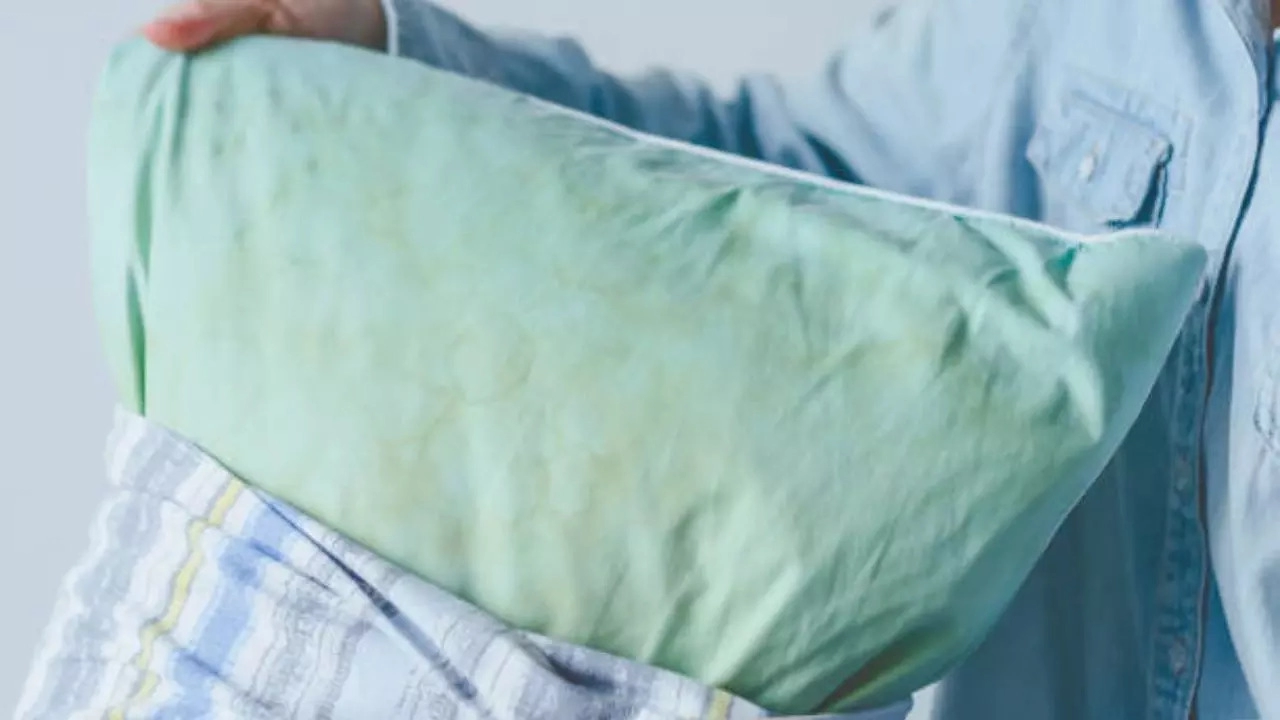Ashima Sharda Mahindra • 21 Jul 2024
Your Pillowcases Can Be Dirtier Than Toilet If Not Washed THIS Often

Experts advise that while you should wash your sheets ideally once a week, pillows should be replaced every six months
Pillows are an intrinsic part of your sleep schedule. However, according to studies, they are also highly susceptible to germs. Most people change their bed sheets frequently to avoid bacteria build-up – especially in summer and rainy seasons when heat and humidity increase sweat and skin flakes.
Experts are now issuing warnings that your pillowcases could end up way dirtier than your toilet if you do not wash them enough.
How do your pillows get dirty?
According to experts, every night, your body sheds around 15 million skin cells - which keep on building up if you do not wash your pillows and sheets often. This is also bad news for millions of people who are allergic to proteins produced by dust mites and their feces.
Dust mites and other pathogens can cause a number of deadly diseases and conditions, including:
- Red and itchy eyes
- Runny noses
- Cold and flu-like symptoms
How often should you clean your pillows?
Experts advise that while you should wash your sheets ideally once a week, pillows should be replaced every six months. That would help kill and eliminate a lot of bacteria and dust mites, apart from getting out stains and removing oils.
Easy ways to clean your bedding
After a tiring day at work, there is no other happy feeling than a freshly made bed, with clean sheets and luxurious pillows – and for that, you need to regularly clean it. A few easy tips you can follow, include:
Ditch the laundry accoutrements
Experts suggest you must refrain from using fabric softeners, as they are toxic and loaded with chemicals, which can spoil the fabric. Since they coat the fabric with toxic chemicals, they can be bad for your skin as well.
Dry the pillows thoroughly
When washing your pillows, make sure to sun dry them properly, or else they could collect mould.
Let your bedroom be airy
Make sure you open the windows in your bedroom daily so that it is airy. A stuffy room would not just be smelly but also become a breeding ground for mould and bacteria
Use essential oils
To keep your pillows and mattresses clean and smelling good, use a few drops of essential oils and natural scents like lavender, cedar, pine, lemon, and rose geranium
Use pillow protectors
Pillow protectors help prevent the spread of allergens, dust mites, mould spores, and bed bugs. Choose protectors that are designed to protect against bacteria and germs and wash them weekly with your other linens. Make sure to always replace them when they are worn out.
Extensively use vinegar and soda
Use vinegar solution and baking soda as natural ways to vacuum your pillows and pillowcases regularly.